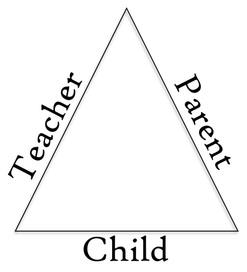“Whose child is this?” asked the teacher one day
Seeing a child come up the school path way
“Mine”, said the parent with an anxious smile
“Whose child is this?”, the teacher asked herself one day
As the school door opened and a child came in
“Mine”, said the teacher with the tender smile.
“Mine, to keep just for a little while.
Whose child is this?” the teacher asked after a while,
“Ours”! replied the parent and teacher
“Ours to love and guide and teach our child together.
This is our task forever!
How can I support the school?
- Parents and teachers are their child’s best teachers. The better the relationship that you have with your child’s teacher and the more you are involved in their education, the more you will find that your child will be happier and perform better.
- It’s important that the parents have a shared goal with teachers, building a strong and close relationship. The more information you share with your child’s teacher, the more she will understand the needs of your child.
- Good communication with parent and teacher is essential for the success of your child’s well being. Advise the teacher of any important personal issues, situations or events which might affect your child’s performance and happiness.
- Talk about your child’s daily school events. Reinforce the things learnt at school.
- Ensure that your child has enough sleep and proper nutrition to learn.
- Make an appointment to take concerns directly to the teacher rather than criticise the teacher or the school in front of your child. Your child needs to know that the teacher and parents are on the same team. Approach the teacher with respect and a desire to understand the situation, rather than with demands to change it. Mutual respect and appropriate communication between teacher and parents will resolve most issues.
- Be a partner in helping plan your child’s education and future.
- Ensure that you regularly read the school’s newsletters to keep in touch with the school’s weekly events and achievements.
- Advocate and model a love of lifetime learning .
- Modelling volunteerism at the school will teach your child the importance of contributing to their community. Parent participation can assist in developing a sense of community within the school.
- Be enthusiastic about school and learning as well as your child’s accomplishments and progress. Celebrate your child’s successes and encourage them when they encounter difficulties.
By Julia Gorham




